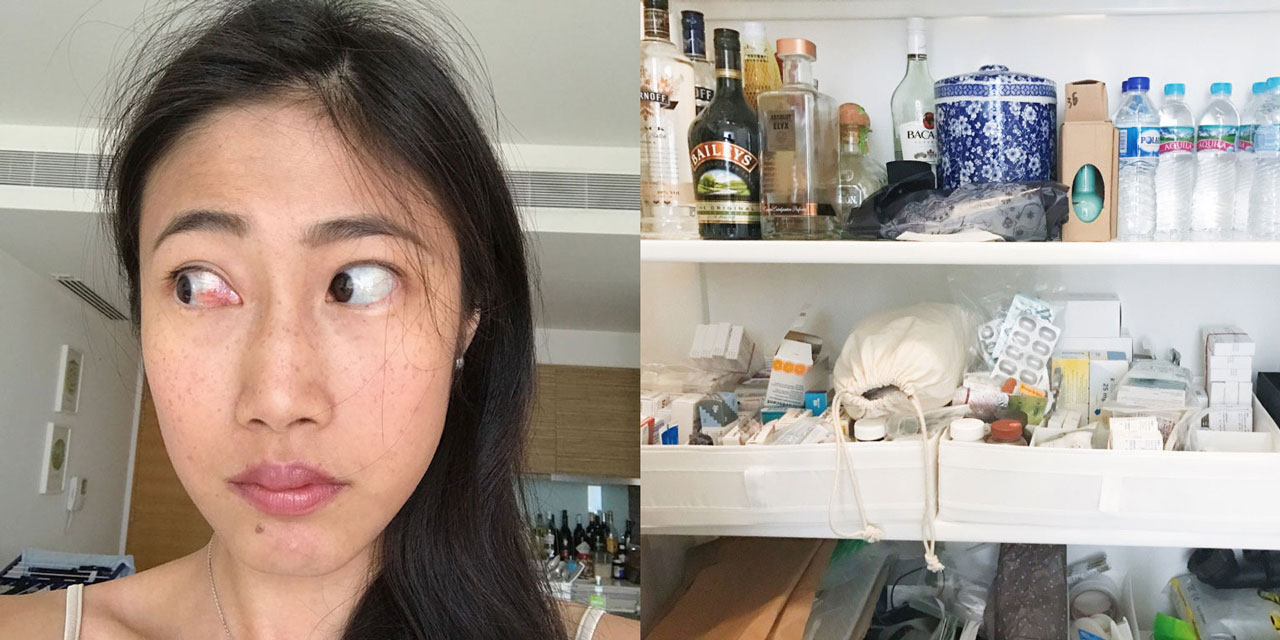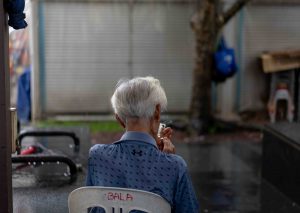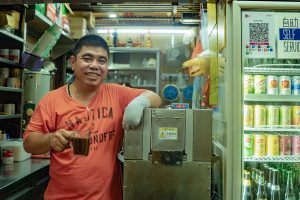I laid in the Emergency Department, bleeding to death. Old folks were being wheeled in and out amidst harsh, flashing lights. The loud beeps of machines were ominous as they dipped … then rose again. This is where doctors try to resuscitate and restore lives in the hospital. But everything bordered on surreal, as my brain fed off the from the high of my third shot of painkillers.
I needed to be transferred to Singapore General Hospital (SGH), and fast. Tan Tock Seng (TTSH), the hospital I was at, did not have a gynaecology department, and I was bleeding rapidly from two ovarian cyst ruptures, no thanks to the blood thinning medication I am on for Antiphospholipid Syndrome. An emergency surgery is the usual protocol, but when you live with blood disorders like mine, it is never straightforward.
The doctor hung up the phone, and brought depressing news to my bed. SGH had refused the emergency transfer request from them as I was too ‘high risk’; too much of a liability. They would only accept me after a gynaecologist from the nearby KK Women’s & Children’s Hospital could “verify” that it was a “real need”.
The entire process to get to where I needed to be would go on to take a full eight hours.
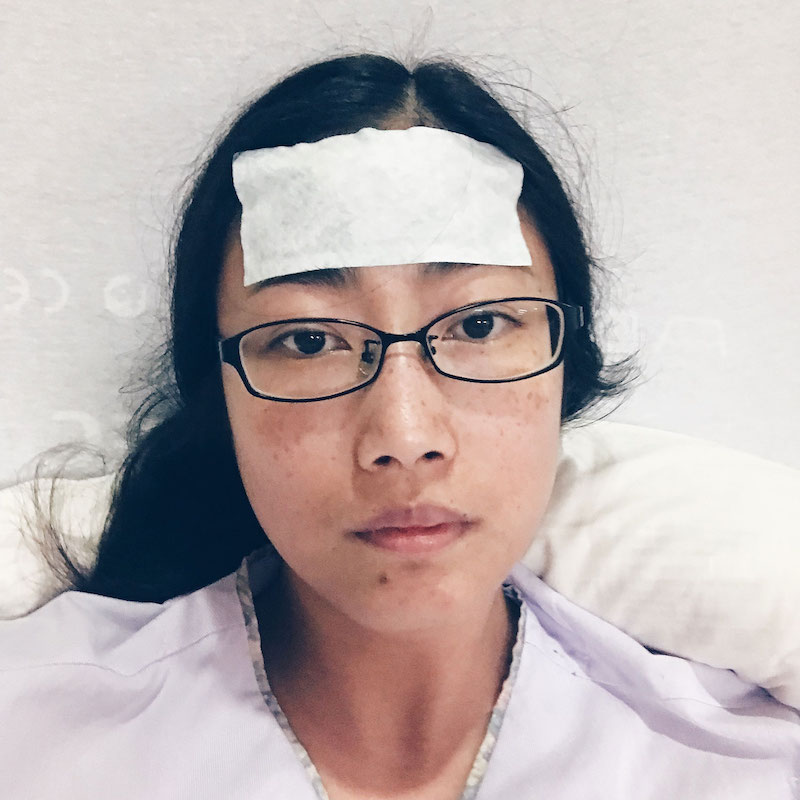
This may seem preposterous, exasperating, even inhumane, but I’m sure that I’m not the only one to have had such experiences, be it in Singapore, or anywhere else in the world. Every day patients take to social media, crying out about the humiliation they’ve had to face either in public, or under various healthcare systems. First-world societies move too quickly, and disabilities can be such, a, drag. Third-world countries lack important resources, medications, staff, and access to education.
Such emergency episodes happen on a yearly, monthly, and even weekly basis for me. And whilst these acute crisis are terrifying, it is often the daily attempts to try and live a decent life despite pain that can really wear on a person. That is, pain that never ends, that goes on and on, day and night, trails along on holidays, and even when you take leave from work. Many who live with a chronic or mental illness are at high risk of suicide.
Stress, the Silent Disruptor We Allow to Run Wild
Our bodies, when healthy, are resilient powerhouses that can take a beating. Without you even being aware, it stores resources, utilises backups, and restores balance to keep you feeling your best.
We all know the importance of a good diet, exercise, and quality sleep, but stress is something that the average person severely undermines. We often think that this is the last factor to eliminate on our journey to wellness. Yet stress can disrupt, trigger, and even destroy many important bodily functions. It can mess with your fertility, increase pain sensitivity, cause depression, anxiety, trigger disorders that might have laid dormant, and so much more.
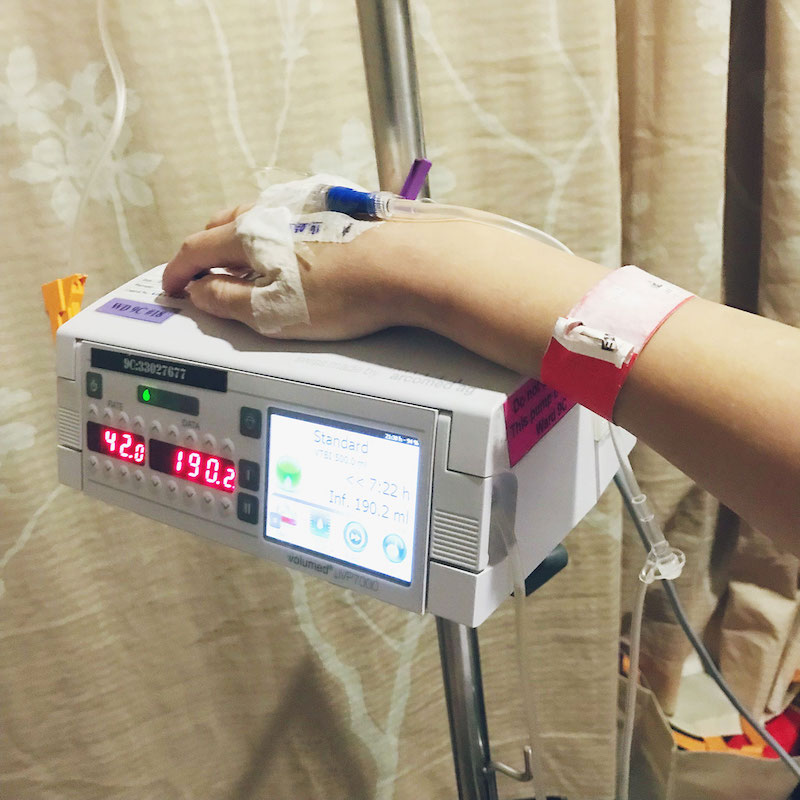
After I graduated, a renowned advertising agency offered me a job as a web developer. It was a high pressure environment where I often left the office only when the sun rose again. Yet it was novel, exciting, and my work was a source of pride to me.
Meanwhile, my red blood cells were ‘mysteriously’ breaking up from Lupus, in a condition known as haemolytic anaemia. My doctor and I had tried and endured through a list of around 10 nasty immunosuppressants to no avail. I was living on half the amount of red blood cells required to sustain life for an entire year.
I was in a constant state of nausea, could never finish my meals, and looked emaciated; but when the sinking is a slow process, you don’t notice that you’re drowning until it’s too late. To illustrate simply, this lack of oxygen flow is akin to altitude sickness, where a person ascends a mountain too quickly. But my body had actually acclimated so that I could breathe normally. Once again, it’s amazing how our body adapts, and what it does for us to survive.
Finally, I decided to take three months of unpaid leave from work just to give my body a short break. I really shouldn’t have been surprised, but my blood count climbed back to a normal range within that short span of time. ‘Dumbfounded’ would be an apt term, and I knew what I had to do when I returned. As I slid my resignation letter across the table to my boss, Valerie Cheng, I was touched to see her tear up. There are human beings out there who are human still.
The Problems I’ve Faced Working Full-Time
This isn’t always the case, unfortunately, as I’ve had to fight for my rights in many other companies and agencies. HR has used my chronic illnesses as an excuse to exclude me from company events or delay my pay for months. Other bosses have used them to fire me on short notice, or humiliate me when I’m struggling to cope.
Apart from that, I am overwhelmed with guilt whenever colleagues need to cover my back, when I’m admitted yet again to the A&E. This is frustrating for my boss and colleagues, I’m sure, but also for me. I do not want to be this unreliable, but I have little control when it comes to the unpredictability of chronic illness and pain. I try to make up for this at times by working from my hospital bed.
It isn’t unusual for people with chronic illnesses to see up to 10 different doctors, as symptoms can occur anywhere in the body, and they often come with comorbidities.
What this means is that beside a whole load of medical expenses which are often unsubsidised due to their rarity, we have one or two doctor appointments per week. This takes a huge bite into work time; it isn’t uncommon to spend six hours at the hospital waiting to see the doctor, collect your medications, make payment, etc.
The irony is that I end up working longer hours than the average person, as I go to the hospital either before work starts, or return to the office until 1am to finish up my work. Taking care of your health, especially when you’re in severe pain, is a full time job in and of itself. You need to be on a constant lookout for changes within your body, energy, and pain levels, in order to prevent or suppress a medical crisis.
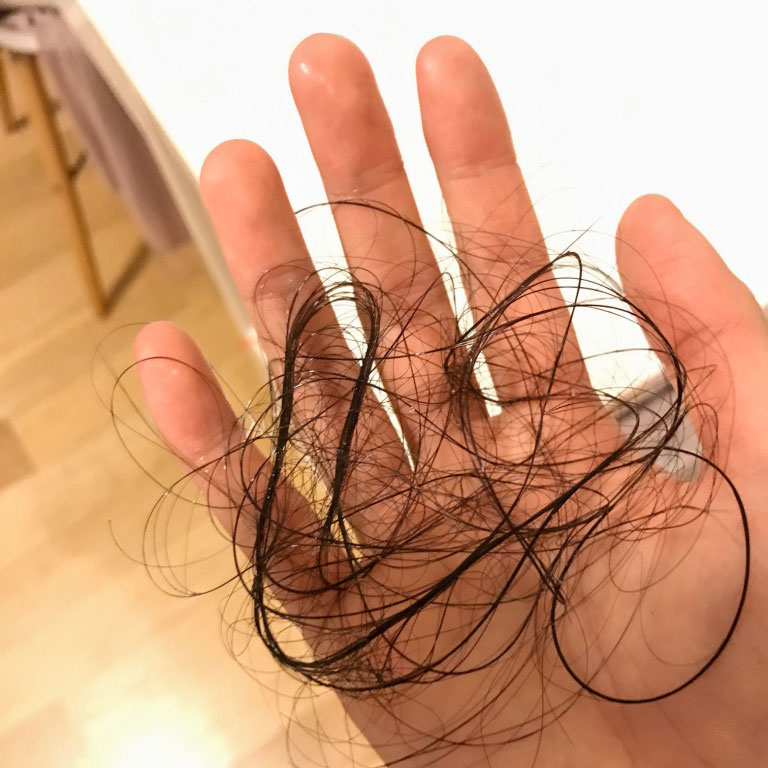
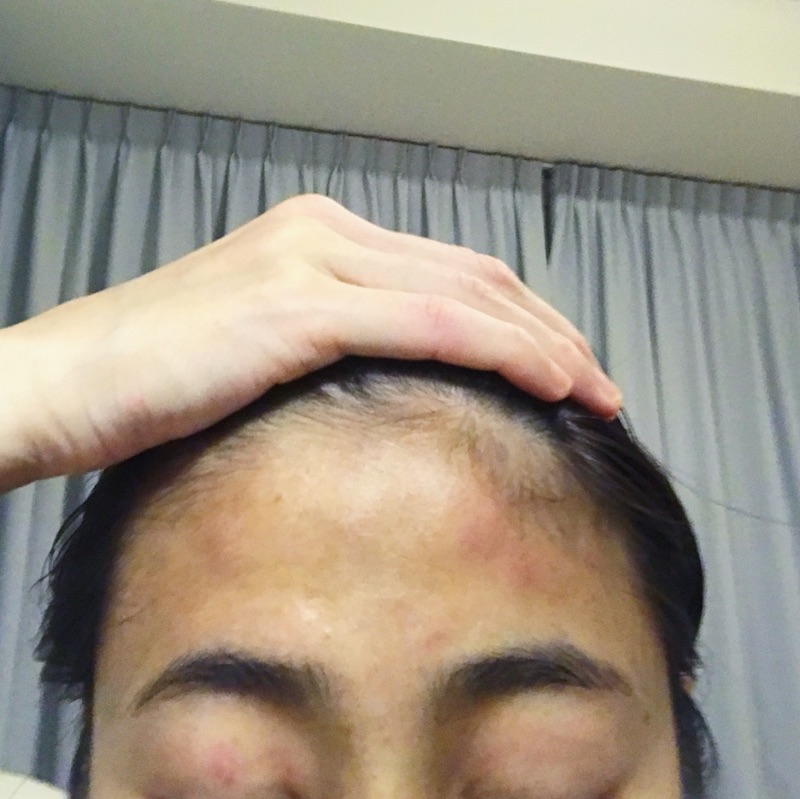
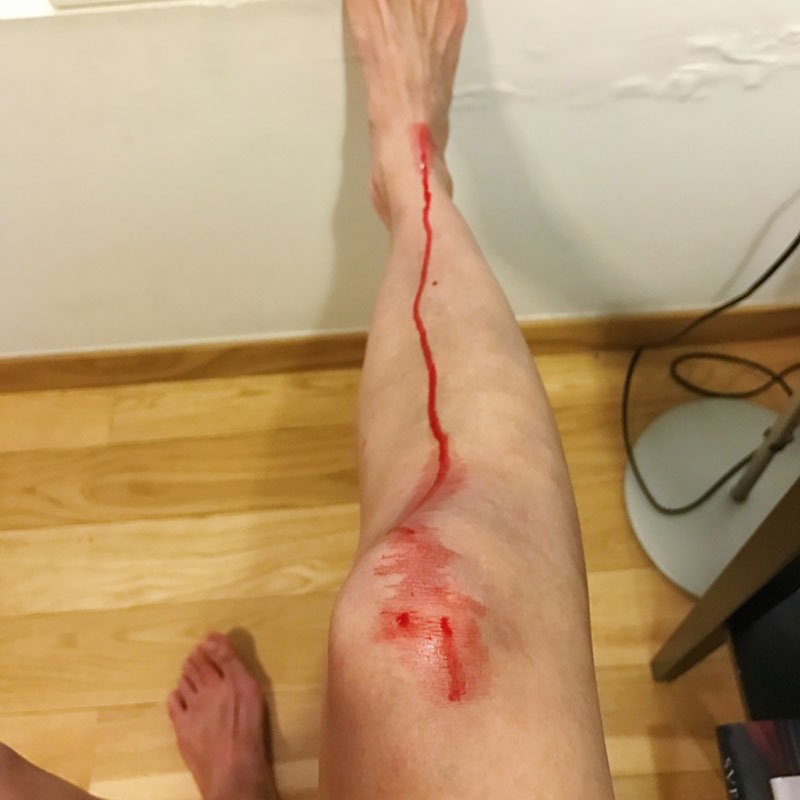
The immune system of healthy people are amazing systems to me. I am always in awe of how their bodies can repair naturally without the aid of medication, because that just doesn’t happen with a chronic illness.
One of the things I dreaded the most in the open spaces of offices or public transport is when people cough or sneeze, blowing their millions of germs into the air like mini bouquets for a cursed bride-to-be. This was how I once caught tuberculosis off the reputedly clean and green streets of Singapore. It made for one of the most nightmarish years of my life. I take about 20 pills a day, and the medication interactions were horrific to say the least.
No, a bit of germ exposure isn’t good to keep my immune system ‘stimulated’. No, I’m not a hypochondriac, princess, or spoilt brat. That sneeze of yours is more powerful than you think. My medications are akin to dropping bombs to wipe out my entire resistance. Your germs have an equivalent effect now, in terms of invading the quiet, defenceless wastelands within my body.
De-Stress with Some Friends, and Risk a Pain Flare
Even happy outings such as meetups with friends can induce pain for people with chronic illnesses. We basically have an energy quota that fluctuates on a daily basis. Any expansion of energy, good or bad, eats into this quota. The lower it dips, the more our pain and fatigue increases. Going into negative means that we will need days, even weeks, to recover.
We often miss out on important life events, our faces erased from memories we would have wanted to be in. Weddings, baby showers, birthdays, funerals—I’ve missed at least a few in each category. I was undergoing surgery on the day of my grandmother’s funeral, and I’ve shown up at a best friend’s wedding the same day I was discharged from the hospital. You never know where life leads you, and life takes you on frequent trips to the border of death and back when you live with chronic illness.
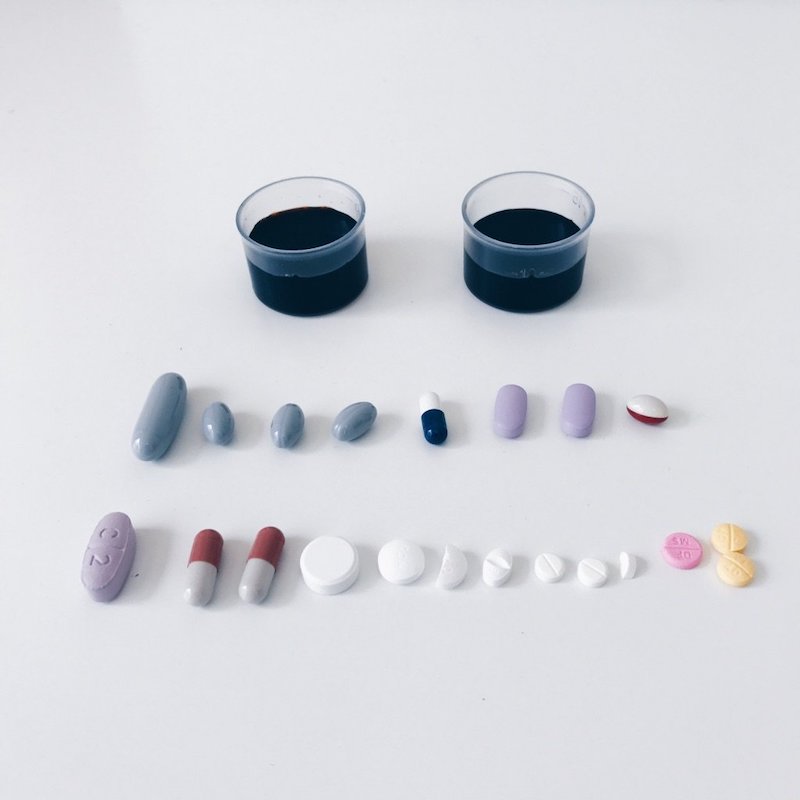
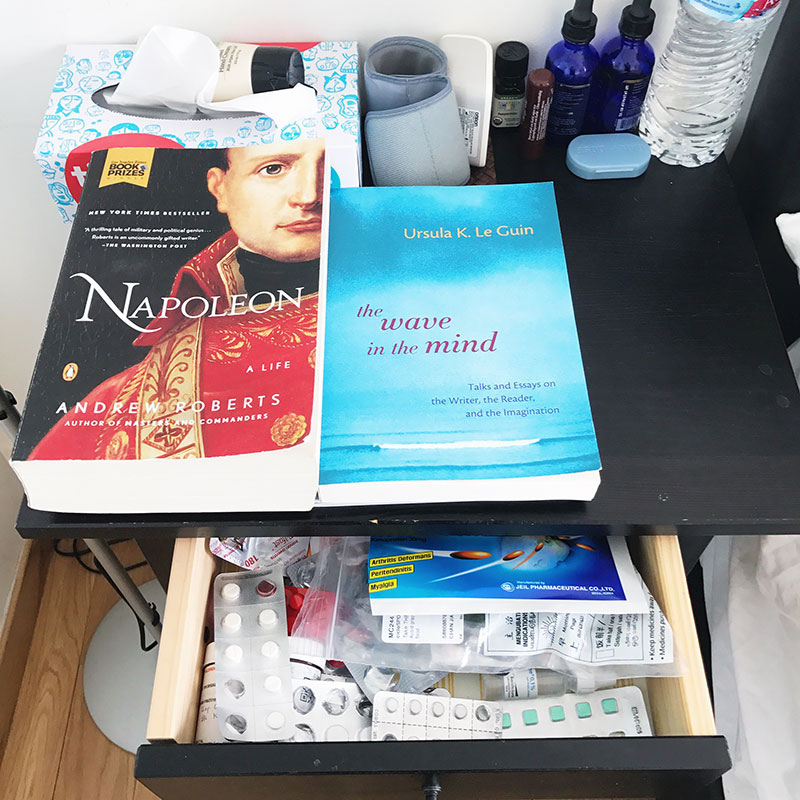
In an Asian society such as ours, respect is deferred first to old folks. People part like cars do when an ambulance speeds by, when a senior citizen rolls by on a wheelchair. As a young person with chronic pain, I am often embarrassed for moving out of their paths too slowly. My bones may be burning, but my skin covers it up like a secret. I have been yelled at, reprimanded for my insolence, and accused of deceit.
I am a big customer of Grab (hey Grab—any incentives for those with chronic pain, perhaps? ;)). Taking a bus or train can be terrifying with chronic illness, especially during peak hours. With the lack of seats, the jerking motions, and sick people everywhere, I try my best to swallow my pain and nausea until I get off.
Having said this, I am happy to see new initiatives by the government that highlight invisible illnesses. ‘Disability’ doesn’t always mean a wheelchair, a walking cane, or a visible mobility aid. The definition of disability is ‘a physical or mental condition that limits a person’s movements, senses, or activities’. Many painful symptoms of autoimmune diseases and general chronic pain happen on the inside; the majority of disabilities are unseen.
I was happy to be discharged after a short three day stay, but I wasn’t happy that it had racked up thousands of dollars in medical bills. There is no government subsidy for Emergency Department cases apparently, and the three drugs used to try and control the bleeding alone amounted to $2,000.
This burden adds to the cost of my monthly medications and appointments, which cost $1,000 – $2,000 on average. I am 33, yet my aging parents still need to help me out with these medical bills. They have little savings for retirement, and whilst that’s what family is for, I can’t help but feel like the black sheep.
I write to raise awareness within society about those who are in need around us. It isn’t even so much about being sick, but a basic empathy for our fellow human beings. Life is full of joy and beauty, but also rampant with pain and tribulations. Every single person has their own crosses to bear, and we all could use a little help to get by in life. Kindness matters, and sometimes an empathetic ear or reassuring word is all it takes to make things better.
We also need to have more compassion for ourselves, as we boil in a fast paced, high speed, pressure-cooker society like Singapore. Take some time to treat yourself right, respect and honour your being, and be kinder to yourself. Your mind and body will thank you for it.

